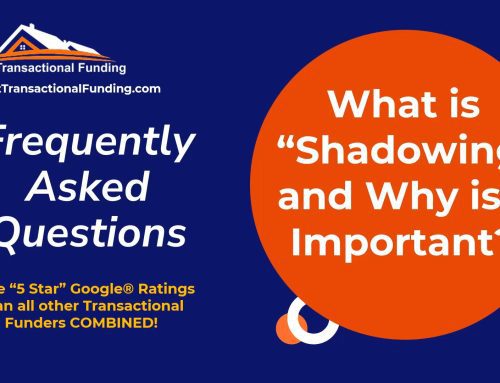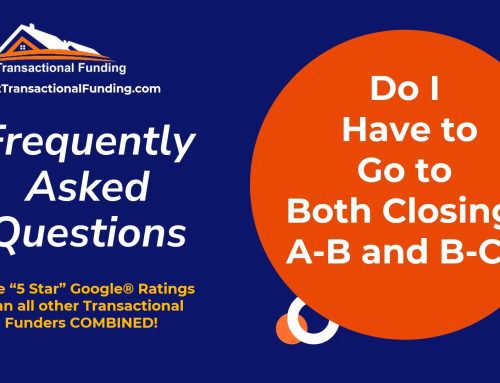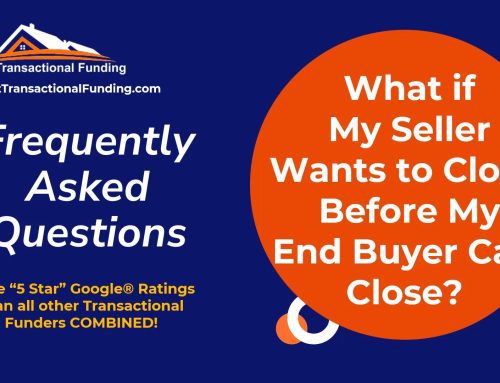
What is the best transactional funding for you?
 As a real estate investor, you have several ways to finance your purchases. Which is the best transaction funding is depending on your exit strategy of the property. There are only three options which are: you will be buying to wholesale, buying to hold and rehab or buying and holding for income.
As a real estate investor, you have several ways to finance your purchases. Which is the best transaction funding is depending on your exit strategy of the property. There are only three options which are: you will be buying to wholesale, buying to hold and rehab or buying and holding for income.
The best transactional funding for all these possibilities is to find a “true” Private Lender who will finance your purchases. Private Lenders are individuals who loan personal funds to investors to make more money than they can make in the bank or in the stock market. Theoretically Private Lenders can provide transaction funding to all three needs that investors have.
Typically, when a Private Lender makes a successful loan or two, he starts to become a “soft” hard money lender. This means he doesn’t have all the stringent requirements the professional lenders require, but his lending rate and qualification for loans will gradually increase to what the market will bear. Too many hard money lenders call themselves Private Lenders to disguise what they will be charging for your loan.
For wholesaling an investor needs transactional funding for a same-day double closing or extended transaction funding if the End-buyer can’t close the same day. If the two purchases and sales take place on the same day the investor can expect to pay between 1% and 2+% of the amount the transactional funder brings to the initial closing.
If the transaction must close and the End-buyer can’t get his transaction funding completed on the same day, the investor can expect to pay 3+% for 30 days and 1% per month after that – hopefully. I say, “hopefully” because most transactional funders have stopped doing extended transaction fundings because of the risk of the End-buyer not closing.
For purchases with the intent to rehab, the investors will need hard money loans. Because of the Mortgage Meltdown and the huge losses hard money lenders experienced, hard money now lives up to its name. This means that each borrower is screened for his background in rehabbing, his credit report and how much money he is putting in the deal. Newer investors, or if credit challenged, face the prospect of paying junk fees, closing points, personal funds up to 30% of the purchase price and interest rates to 15%.
For investors who wants to be a landlord, he will sometimes get a hard money loan to purchase the property, do the necessary rehab and then refinance with a conventional lender (bank, savings and loan, credit union, etc.) to get a livable interest rate for holding. He will have to qualify for this conventional loan and will have to put 10% to 20% into the cost of the purchase.
In summary, what is the best transactional funding for you depends on your exit strategy and the cost of money if you are going to hold a property. It is important to shop for a lender and rates before you are forced to accept a last-minute choice. Always ask about any additional fees especially with hard money lenders who can have junk fees.
Search terms – best transaction funding, hard money, conventional loan, private lender, double closings, extended transactional funding, real estate investors



